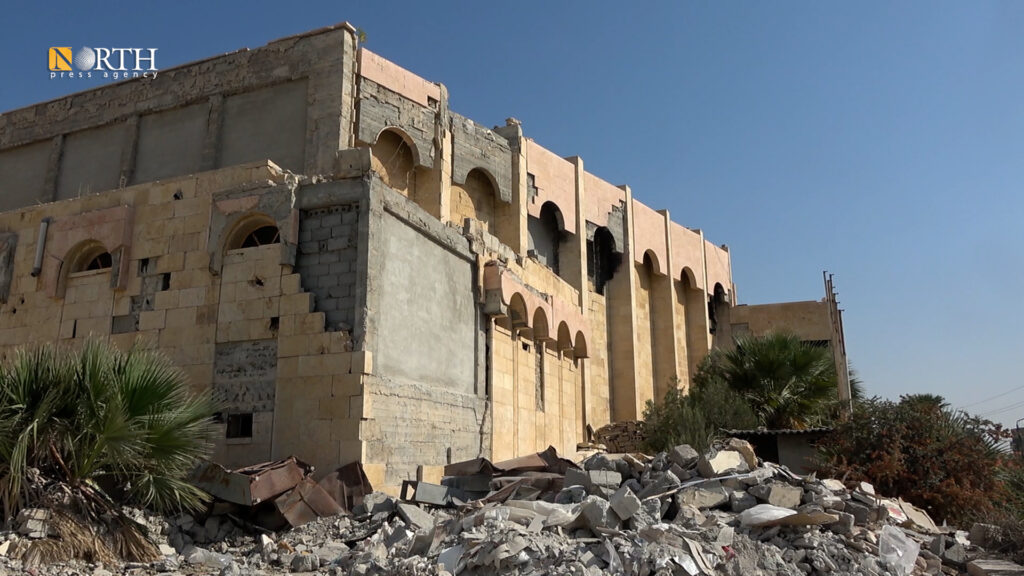By Ahmad al-Nasser
TABQA, Syria (North Press) –Abdullah al-Raja, an intellectual from the city of Tabqa in Raqqa Governorate, northern Syria, believes that the cultural movement in the region has been limited despite efforts to develop it.
Despite the limitations, social media platforms have played a significant role in promoting the work of intellectuals, whether poets or authors.
Since the establishment of the Civil Administration of Tabqa affiliated with the Autonomous Administration of North and East Syria (AANES), efforts have been made to create an umbrella organization for intellectuals, starting with the Intellectuals Union. Nonetheless, intellectuals in Tabqa have long felt the need for a dedicated cultural center.
The Cultural Center in Tabqa is the primary hub for culture and a meeting center for intellectuals, writers, poets, and those interested in culture and art.
In July, the Culture and Art Committee in Tabqa affiliated with the AANES began working on renovating the western section of the Tabqa Cultural Center. Last year, the committee worked on renovating the Center’s theater.

Complete destruction
The center was completely destroyed during the control of armed factions and the Islamic State (ISIS) who turned it into a prison and a court.
In January 2014, ISIS fully captured the city of Raqqa and its countryside from Syrian opposition factions and later declared it as the de-facto capital of its caliphate. The extremist group was expelled in October 2017 after a four-month battle with the Syrian Democratic Forces (SDF), backed by the US-led Global Coalition.
On Oct. 25, Ali Alaya, co-chair of the Culture and Art Committee in Tabqa, said that 80 percent of the western section of the Cultural Center is renovated and would be ready to receive visitors within a month.
Al-Raja said that the Intellectuals Union has supported several individuals and promoted their writings and novels according to the available limited resources.
However, the center plays a significant role in promoting culture in Tabqa, especially if it is fully activated. The center includes a library and theaters that can accommodate intellectuals and those interested in culture.
“Every year, we have annual plans to rehabilitate all cultural centers and platforms,” Alaya said.
“As part of this year’s plan, we are working on organizing events and rehabilitating cultural centers, including the one in the town of al-Mansura [east of Tabqa],” Alaya noted.
Hope
In a previous statement to North Press, Alaya further explained that they aim “to renovate all cultural centers and platforms to give opportunities to all intellectuals, as well as to hold cultural events in all their forms.”
In turn, Anas Shahadha, a storyteller, said the cultural reality in Tabqa is weak, stagnant, and the youth are marginalized unlike other regions that attract talented individuals, despite the presence of esteemed intellectuals.
He told North Press that the cultural field in Tabqa faces many challenges such as ” cynicism, social perception, and hindering the progress and development of the youth.”
He further explained that the restoration of the cultural center positively impacts and promotes cultural development. “The Cultural Center in Tabqa has a long history and is distinguished in Syria,” Shahadha said.
He described the renovation process as “the light at the end of the tunnel,” emphasizing that it is more than just rebuilding and enhancing the physical structure. It also aims to revive the cultural movement and its concept.
Shahadha hopes that, besides the physical reconstruction, the cultural reality would be developed and restored to its pre-war state.

